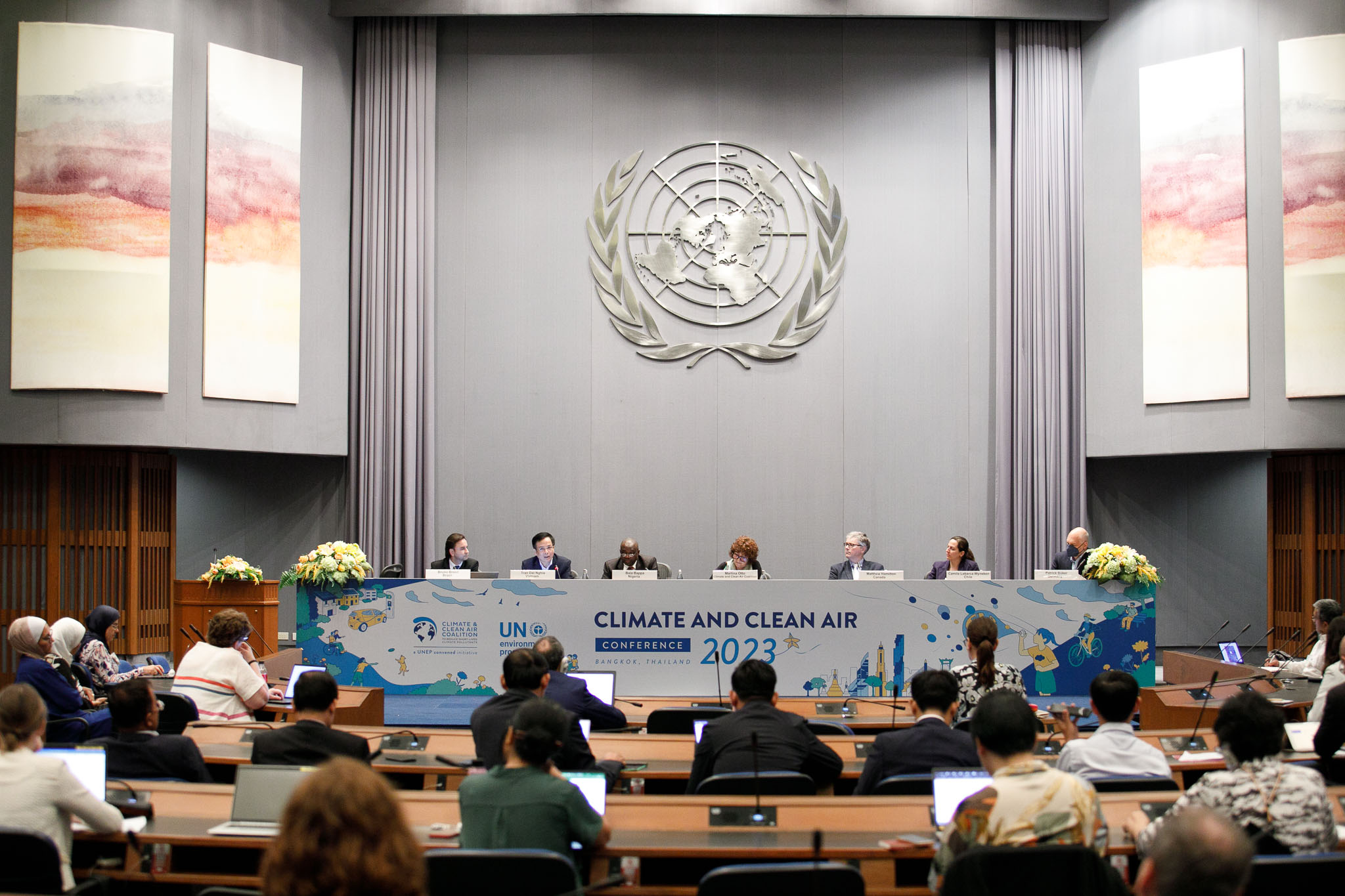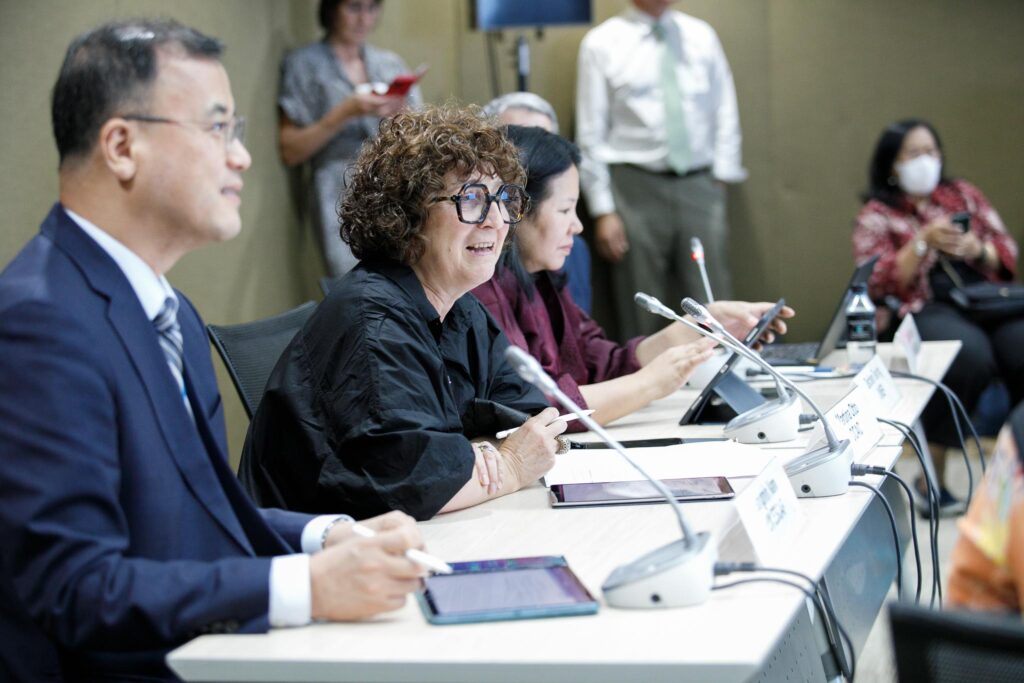
Climate and Clean Air Conference 2023: 57 countries calling for cooperation to tackle pollution
In late May, the Climate and Clean Air Coalition and UNEP’s Asia and the Pacific Office held the Climate and Clean Air Conference 2023 (CCAC2023). Nearly 400 participants from 57 countries participated in the sessions and collectively called for international cooperation to combat air pollution and climate change.
At the conference, delegates from member states and international partners shared efforts and developments towards climate change mitigation and air pollution reduction.
Mongolia has ratified the Kigali Amendment to reduce hydrofluorocarbons (HFCs) emissions and joined the Global Methane Pledge, promising to lower global methane emissions by at least 30% by 2030. In addition, the Regional Action Program on Air Pollution was initiated at the High-Level Forum on Clean Air in Ulaanbaatar in March.
South Korea has established a Comprehensive Plan for Air Quality Improvement and finalized the first Masterplan for carbon neutrality and green growth. Japan has also joined the Global Methane Pledge and has been long been a supporter of projects to manage HFC life cycle in collaboration with the CCAC.
The Bangkok Metropolitan Administration in Thailand has put into place numerous programs to cut air pollution, including curbing biomass burning, promoting public transport systems, enhancing vocational training, improving indoor air quality, and undertaking greening initiatives.
The Asian Development Bank has allocated US$100 billion for climate finance in Asia-Pacific, and with the support of UNESCAP, has recently adopted a Regional Action program on air pollution.
New science was also presented at the conference, proving unequivocally the urgent need to fight against short-lived climate pollutants (SLCP). A new report on Clean Air and Climate Solutions for ASEAN was launched. Scientists from the CCAC Scientific Advisory Panel presented on critical topics including the link between increasing aerosol levels and rising temperatures, which in turn contribute to heatwave-related deaths, and on solutions and pathways to implementation of those solutions.

Participants have come from 57 different countries, but their communal voice was clear: there is no time to lose and we should act on short-lived climate pollutants before it’s too late.
Short-lived climate pollutants, including black carbon, methane, HFCs, and tropospheric ozone, are powerful climate forcers with global warming potentials many times that of carbon dioxide.
Climate change threatens the survival of mankind, and air pollution is an equally serious environmental problem that knows no borders. To solve these problems, we cannot rely on one country alone. All countries must work together to find solutions, so that we could have hope in our future.
Source: CCAC

